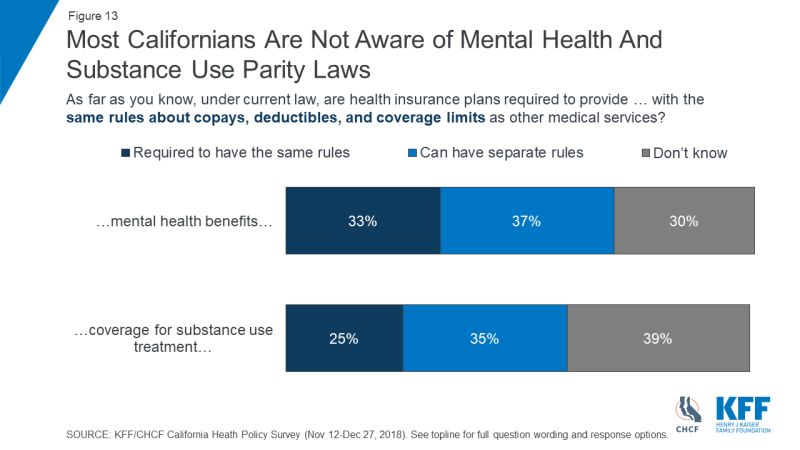The Health Care Priorities and Experiences of California Residents
Section 2: Mental Health Coverage And Access To Treatment
As noted above, making sure people with mental health problems can get treatment tops the list of California residents’ health care priorities for the state government to address. This may be related to the fact that about half (52 percent) of Californians say their community does not have enough mental health providers to serve the needs of local residents, compared to 27 percent who say it does have enough and 21 percent who say they don’t know enough to say. In four of the six California regions broken out in the survey, majorities of residents say their community does not have enough mental health providers to serve residents’ needs, with the highest share in Los Angeles County (58 percent). [Figure 6]
In addition, Californians who are Black (75 percent) or Hispanic (57 percent) are more likely than those who are white (49 percent) or Asian (42 percent) to feel their community lacks adequate numbers of mental health providers, and women are somewhat more likely than men to feel this way (57 percent versus 47 percent). [Figure 7]
About a quarter (24 percent) of California residents say that they or a family member sought counseling or treatment for a mental health condition in the past 12 months. [Figure 8] Among this group, nearly two-thirds (63 percent) say their community does not have enough providers.
More broadly, a majority (57 percent) of state residents think that most people with mental health conditions in California are not able to get the services they need, and nearly half (48 percent) say the same about people with alcohol or drug use problems. [Figure 9]
Again, these shares are higher among those who have sought such services: 66 percent of those who say they or a family member sought services for a mental health condition say most Californians are not able to get needed mental health services. Similarly, 61 percent of those who say they or a family member sought treatment for substance use problems say most Californians are not able to get needed treatment services. [Figure 10]
Access to mental health treatment may be a particular issue for residents with Medi-Cal coverage. Among non-elderly Medi-Cal enrollees who say they or a family member sought counseling or treatment for a mental health condition in the past 12 months, four in ten (42 percent) say there was a time when they had to wait longer than they thought was reasonable to get an appointment for these services. Among all Californians who say someone in their family sought mental health treatment, this share is about one quarter (23 percent). [Figure 11]
Treatments for mental health and substance use disorders are widely seen by Californians as effective. About three-quarters (76 percent) of state residents say that counseling and medical treatment is very effective in helping people with mental health conditions lead healthy and productive lives, and a similar share (73 percent) say the same about people with alcohol or drug use problems. [Figure 12]
Despite the high priority placed on this issue, few Californians are aware of mental health parity laws that require health insurance plans to provide mental health and substance use disorder treatment benefits that are on par with benefits for other medical services1. One third (33 percent) know that insurance plans are required to provide mental health benefits with the same rules about cost-sharing and coverage limits as other medical services, and just a quarter know this is the case for coverage of substance abuse treatment. [Figure 13]
Figure 6
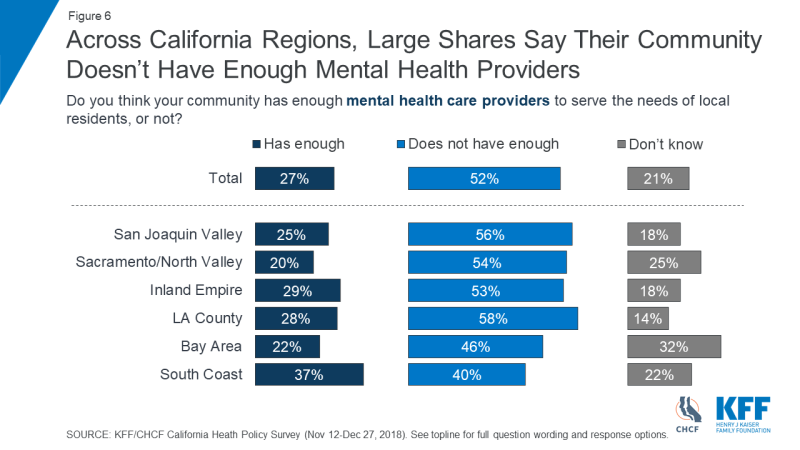
Figure 6: Across California Regions, Large Shares Say Their Community Doesn’t Have Enough Mental Health Providers
Figure 7
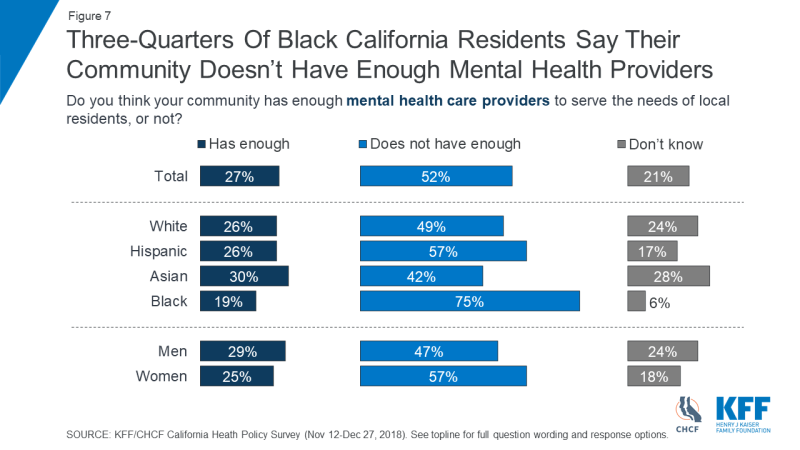
Figure 7: Three-Quarters Of Black California Residents Say Their Community Doesn’t Have Enough Mental Health Providers
Figure 8
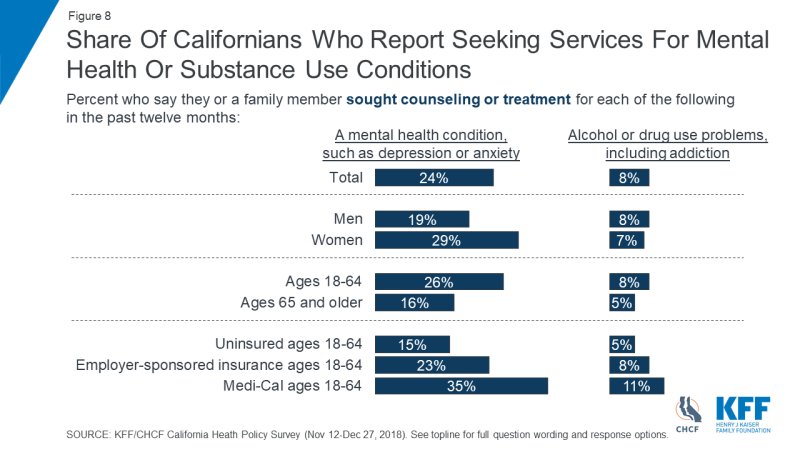
Figure 8: Share Of Californians Who Report Seeking Services For Mental Health Or Substance Use Conditions
Figure 9
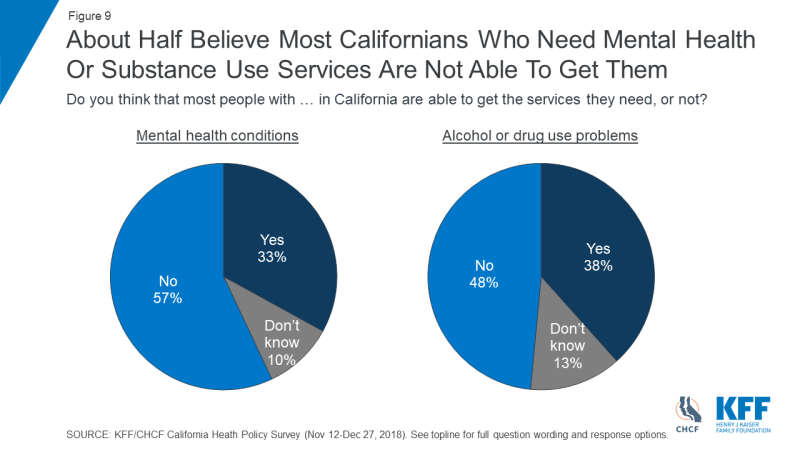
Figure 9: About Half Believe Most Californians Who Need Mental Health Or Substance Use Services Are Not Able To Get Them
Figure 10
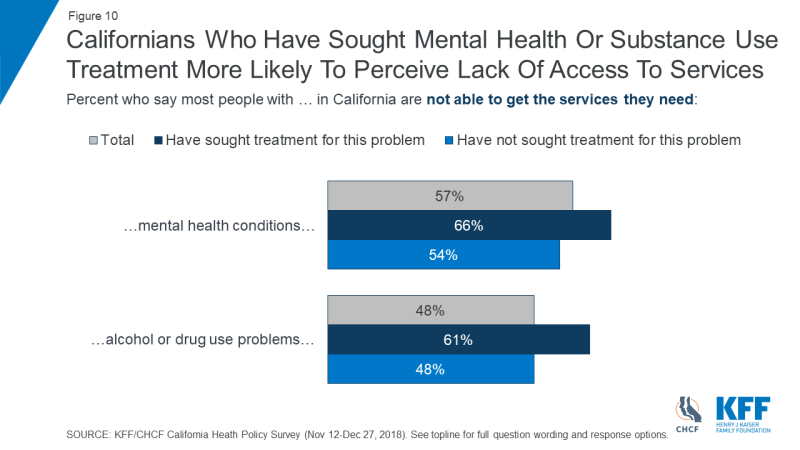
Figure 10: Californians Who Have Sought Mental Health Or Substance Use Treatment More Likely To Perceive Lack Of Access To Services
Figure 11
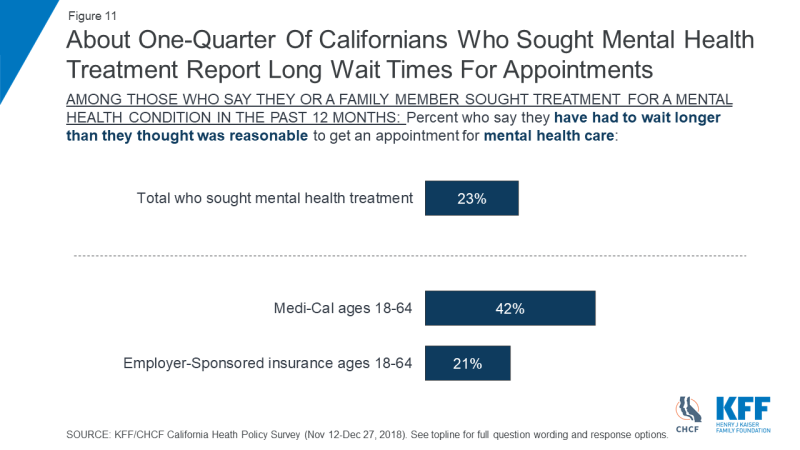
Figure 11: About One-Quarter Of Californians Who Sought Mental Health Treatment Report Long Wait Times For Appointments
Figure 12
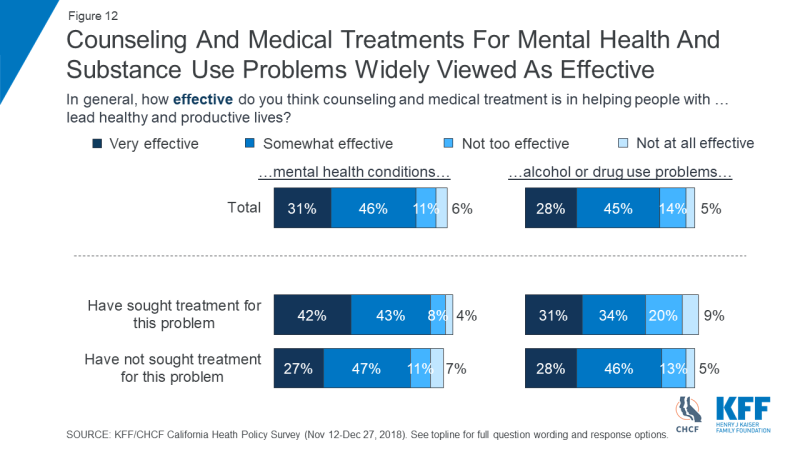
Figure 12: Counseling And Medical Treatments For Mental Health And Substance Use Problems Widely Viewed As Effective

